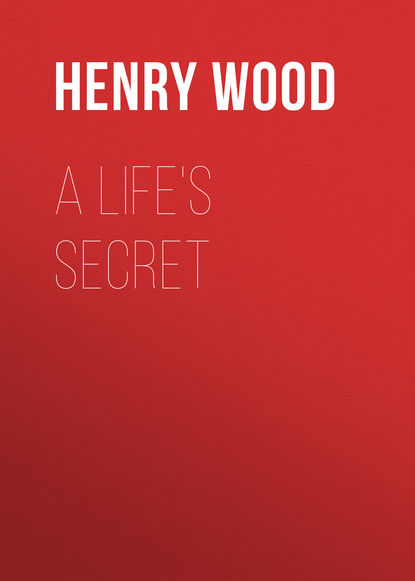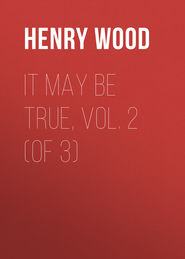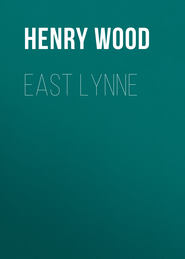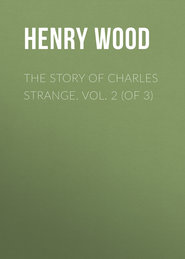По всем вопросам обращайтесь на: info@litportal.ru
(©) 2003-2024.
✖
A Life's Secret
Настройки чтения
Размер шрифта
Высота строк
Поля
'Come, Bevary, what have you got in your head? I do not know her. I never met with her until she saw and accosted me. Are you acquainted with her history?'
'With a dark page in it.'
'What is the page?'
Dr. Bevary shook his head. 'In the course of a physician's practice he becomes cognisant of many odds and ends of romance, dark or fair; things that he must hold sacred, and may not give utterance to.'
Mr. Henry Hunter looked vexed. 'Perhaps you can understand the reason of her attacking me?'
'I could understand it, but for your assertion of being a stranger to her. If it is so, I can only believe that she mistook you for another.'
'If it is so,' repeated Mr. Henry Hunter. 'I am not in the habit of asserting an untruth, Bevary.'
'Nor, on the other hand, is Miss Gwinn one to be deceived. She is keen as a razor.'
'Bevary, what are you driving at?'
'At nothing. Don't be alarmed, Henry. I have no cause to suppose you know the woman, or she you. I only thought—and think—she is one whom it is almost impossible to deceive. It must, however, have been a mistake.'
'It was a mistake—so far as her suspicion that she knew me went,' decisively returned Mr. Henry Hunter.
'Ay,' acquiesced Dr. Bevary. 'But here am I gossiping my morning away, when a host of patients are waiting for me. We poor doctors never get a holiday, as you more favoured mortals do.'
He laughed as he went out, nodding a friendly farewell to Austin. Mr. Henry Hunter stepped out after him. Then Mr. Hunter, who had not taken part in the discussion, but had stood looking from the window while they carried it on, wheeled round to Austin and spoke in a low, earnest tone.
'What is this tale—this mystery—that my brother and the doctor seem to be picking up?'
'Sir, I know no more than you have heard me say. I witnessed her attack on Mr. Henry Hunter.'
'I should like to know further about it: about her. Will you–Hush! here comes my brother back again. Hush!'
His voice died away in the faintest whisper, for Mr. Henry Hunter was already within the room. Was Mr. Hunter suspecting that his brother had more cognisance of the affair than he seemed willing to avow? The thought, that it must be so, crossed Austin Clay; or why that warning 'hush' twice repeated?
It happened that business was remarkably brisk that season at Hunter and Hunter's. They could scarcely get hands enough, or the work done. And when Austin explained the cause which had brought him to town, and frankly proffered the question of whether they could recommend him to employment, they were glad to offer it themselves. He produced his credentials of capacity and character, and waited. Mr. Henry Hunter turned to him with a smile.
'I suppose you are not above your work, Mr. Clay?'
'I am not above anything in the world that is right, sir. I have come to seek work.'
He was engaged forthwith. His duties at present were to lie partly in the counting-house, partly in overlooking the men; and the salary offered was twenty-five pounds per quarter.
'I can rise above that in time, I suppose,' remarked Austin, 'if I give satisfaction?'
Mr. Hunter smiled. 'Ay, you can rise above that, if you choose. But when you get on, you'll be doing, I expect, as some of the rest do.'
'What is that, sir?'
'Leaving us, to set up for yourself. Numbers have done so as soon as they have become valuable. I do not speak of the men, you understand, but of those who have been with us in a higher capacity. A few of the men, though, have done the same; some have risen into influence.'
'How can they do that without capital?' inquired Austin. 'It must take money, and a good deal of it, to set up for themselves.'
'Not so much as you may think. They begin in a small way—take piece-work, and work early and late, often fourteen and fifteen hours a day, husbanding their earnings, and getting a capital together by slow but sure degrees. Many of our most important firms have so risen, and owe their present positions to sheer hard work, patience, and energy.'
'It was the way in which Mr. Thornimett first rose,' observed Austin. 'He was once a journeyman at fourteen shillings a week. He got together money by working over hours.'
'Ay, there's nothing like it for the industrious man,' said Mr. Hunter.
Preliminaries were settled, advice given to him where he might find lodgings, and Austin departed, having accepted an invitation to dine at six at Mr. Henry Hunter's.
And all through having performed an unpremeditated but almost necessary act of bravery.
CHAPTER IV.
DAFFODIL'S DELIGHT
Turning to the right after quitting the business premises of the Messrs. Hunter, you came to an open, handsome part, where the square in which those gentlemen dwelt was situated, with other desirable squares, crescents, and houses. But, if you turned to the left instead of to the right, you very speedily found yourself in the midst of a dense locality, not so agreeable to the eye or to the senses.
And yet some parts of this were not much to be complained of, unless you instituted a comparison between them and those open places; but in this world all things are estimated by comparison. Take Daffodil's Delight, for example. 'Daffodil's Delight! what's that?' cries the puzzled reader, uncertain whether it may be a fine picture or something to eat. Daffodil's Delight was nothing more than a tolerably long street, or lane, or double row of houses—wide enough for a street, dirty enough for a lane, the buildings irregular, not always contiguous, small gardens before some, and a few trees scattered here and there. When the locality was mostly fields, and the buildings on them were scanty, a person of the name of Daffodil ran up a few tenements. He found that they let well, and he ran up more, and more, and more, until there was a long, long line of them, and he growing rich. He called the place Daffodil's Delight—which we may suppose expressed his own complacent satisfaction at his success—and Daffodil's Delight it had continued, down to the present day. The houses were of various sizes, and of fancy appearance; some large, some small; some rising up like a narrow tower, some but a storey high; some were all windows, some seemed to have none; some you could only gain by ascending steps; to others you pitched down as into a cellar; some lay back, with gardens before their doors, while others projected pretty nearly on to the street gutter. Nothing in the way of houses could be more irregular, and what Mr. Daffodil's motive could have been in erecting such cannot be conjectured—unless he formed an idea that he would make a venture to suit various tastes and diverse pockets.
Nearly at the beginning of this locality, in its best part, before the road became narrow, there stood a detached white house; one of only six rooms, but superior in appearance, and well kept; indeed, it looked more like a gentleman's cottage residence than a working man's. Verandah blinds were outside the windows, and green wire fancy stands held geraniums and other plants on the stone copings, against their lower panes, obviating the necessity for inside blinds. In this house lived Peter Quale. He had begun life carrying hods of mortar for masons, and covering up bricks with straw—a half-starved urchin, his feet as naked as his head, and his body pretty nearly the same. But he was steady, industrious, and persevering—just one of those men that work on for decent position, and acquire it. From two shillings per week to four, from four to six, from six to twelve—such had been Peter Quale's beginnings. At twelve shillings he remained for some time stationary, and then his advance was rapid. Now, he was one of the superior artisans of the Messrs. Hunters' yard; was, in fact, in a post of trust, and his wages had grown in proportion. Daffodil's Delight said that Quale's earnings could not be less than 150l. per annum. A steady, sensible, honest, but somewhat obstinate man, well-read, and intelligent; for Peter, while he advanced his circumstances, had not neglected his mind. He had cultivated that far more than he had his speech or his manner; a homely tone and grammar, better known to Daffodil's Delight than to polite ears, Peter favoured still.
In the afternoon of Whit Monday, the day spoken of already, Peter sat in the parlour of his house, a pipe in his mouth, and a book in his hand. He looked about midway between forty and fifty, had a round bald head, surmounted just now by a paper cap, a fair complexion, grey whiskers, and a well-marked forehead, especially where lie the perceptive faculties. His eyes were deeply sunk in his head, and he was by nature a silent man. In the kitchen behind, 'washing up' after dinner, was his helpmate, Mrs. Quale. Although so well to do, and having generally a lodger, she kept no servant—'wouldn't be bothered with 'em,' she said—but did her own work; a person coming in once a week to clean.
A rattling commotion in the street caused Peter Quale to look up from his book. A large pleasure-van was rumbling down it, drawing up at the next door to his.
'Nancy!' called out he to his wife.
'Well?' came forth the answer, in a brisk, bustling voice, from the depths of the kitchen.
'The Shucks, and that lot, be actually going off now?'
The news appeared to excite the curiosity of Mrs. Quale, and she came hastily in; a dark-eyed, rosy-cheeked little woman, with black curls. She wore a neat white cap, a fresh-looking plum-coloured striped gown of some thin woollen material, and a black apron; a coarse apron being pinned round her. Mrs. Quale was an inveterate busybody, knew every incident that took place in Daffodil's Delight, and possessed a free-and-easy tongue; but she was a kindly woman withal, and very popular. She put her head outside the window above the geraniums, to reconnoitre.
'Oh, they be going, sure enough! Well, they are fools! That's just like Slippery Sam! By to-morrow they won't have a threepenny piece to bless themselves with. But, if they must have went, they might have started earlier in the day. There's the Whites! And—why!—there's the Dunns! The van won't hold 'em all. As for the Dunns, they'll have to pinch for a month after it. She has got on a dandy new bonnet with pink ribbons. Aren't some folks idiots, Peter?'
Peter rejoined, with a sort of a grunt, that it wasn't no business of his, and applied himself again to his pipe and book. Mrs. Quale made everybody's business hers, especially their failings and shortcomings; and she unpinned the coarse apron, flung it aside, and flew off to the next house.
It was inhabited by two families, the Shucks and the Baxendales. Samuel Shuck, usually called Slippery Sam, was an idle, oily-tongued chap, always slipping from work—hence the nickname—and spending at the 'Bricklayers' Arms' what ought to have been spent upon his wife and children. John Baxendale was a quiet, reserved man, living respectably with his wife and daughter, but not saving. It was singular how improvident most of them were. Daffodil's Delight was chiefly inhabited by the workmen of the Messrs. Hunter; they seemed to love to congregate there as in a nest. Some of the houses were crowded with them, a family on a floor—even in a room; others rented a house to themselves, and lived in comfort.
Assembled inside Sam Shuck's front room, which was a kitchen and not a parlour, and to which the house door opened, were as many people as it could well hold, all in their holiday attire. Abel White, his wife and family; Jim Dunn, and his; Patrick Ryan and the childer (Pat's wife was dead); and John Baxendale and his daughter, besides others; the whole host of little Shucks, and half-a-dozen outside stragglers. Mrs. Quale might well wonder how all the lot could be stuffed into the pleasure-van. She darted into their midst.
'You never mean to say you be a-going off, like simpletons, at this time o' day?' quoth she.
'Yes, we be,' answered Sam Shuck, a lanky, serpent sort of man in frame, with a prominent black eye, a turned-up nose, and, as has been said, an oily tongue. 'What have you got to say again it, Mrs. Quale? Come!'
'Say!' said that lady, undauntedly, but in a tone of reason rather than rebuke, 'I say you may just as well fling your money in the gutter as to go off to Epping at three o'clock in the afternoon. Why didn't you start in the morning? If I hired a pleasure-van I'd have my money's worth out of it.'
'It's just this here,' said Sam. 'It was ordered to be here as St. Paul's great bell was a striking break o' day, but the wheels wasn't greased; and they have been all this time a greasing 'em with the best fresh butter at eighteen-pence a pound, had up from Devonshire on purpose.'











